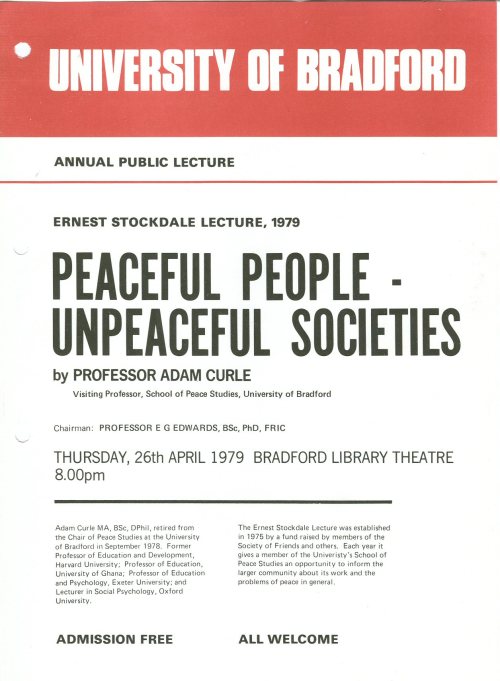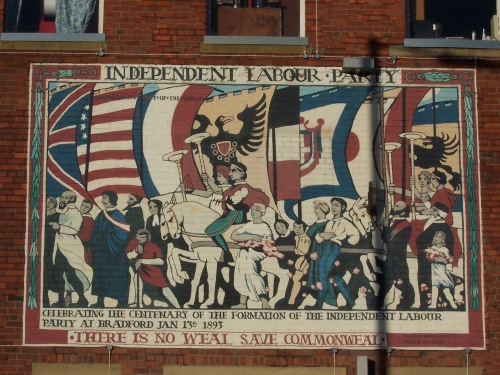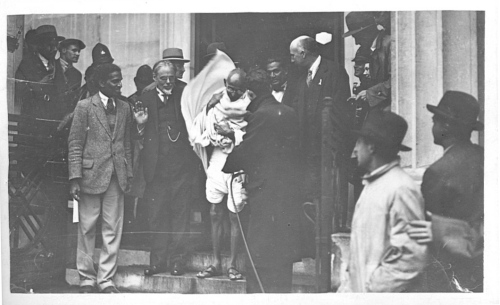This week, two little pamphlets which tell the story of a unique newspaper: Peace News. The history of Peace News is that of the peace movement in Britain. Written, edited and read by activists, it reflected and shaped campaigns and debates.
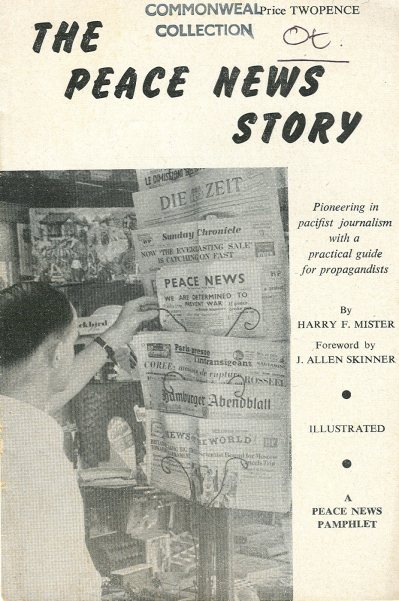 The Peace News Story was written by Harry Mister. This particular issue dates from around 1951 or 1952, just after Allen Skinner became editor. It begins with a potted and very positive account of the early years of the paper.
The Peace News Story was written by Harry Mister. This particular issue dates from around 1951 or 1952, just after Allen Skinner became editor. It begins with a potted and very positive account of the early years of the paper.
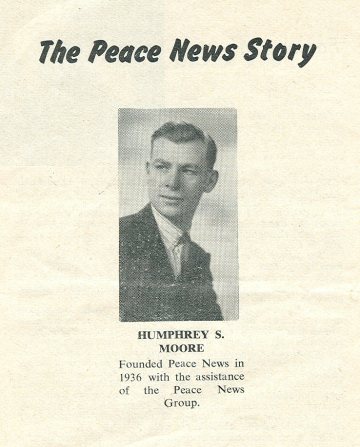 The paper’s first editor, Humphrey S. Moore, a young Quaker journalist, believed that existing peace publications did not reach out to ordinary people. A popular newspaper-style weekly could explain and promote pacifism more effectively. On 6 June 1936, with the support of the Wood Green Study Group (who became the Peace News Group), the first issue was published.
The paper’s first editor, Humphrey S. Moore, a young Quaker journalist, believed that existing peace publications did not reach out to ordinary people. A popular newspaper-style weekly could explain and promote pacifism more effectively. On 6 June 1936, with the support of the Wood Green Study Group (who became the Peace News Group), the first issue was published.
The Peace Pledge Union quickly saw the potential of…
View original post 796 more words
